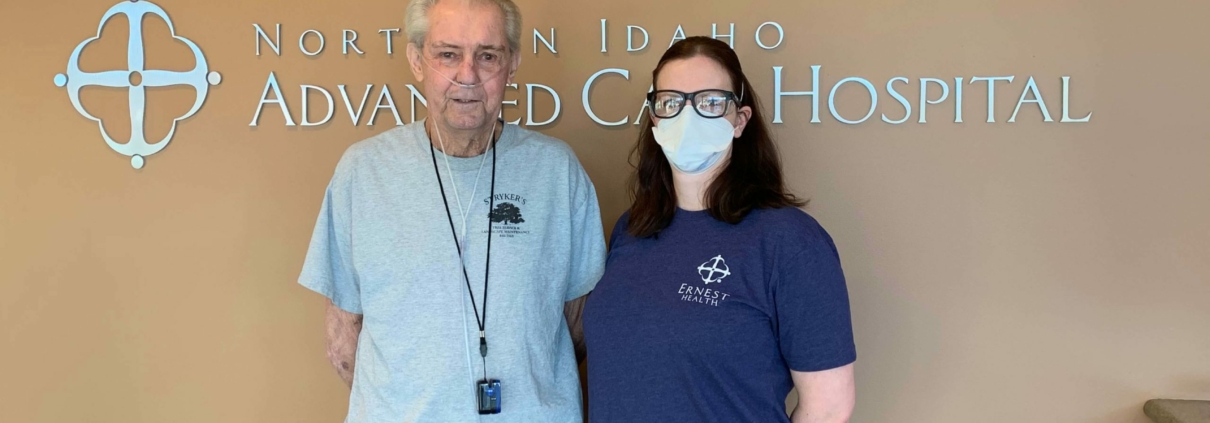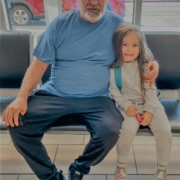Bill Stryker
William “Bill” Stryker is no stranger to breathing problems. Bill lives with chronic obstructive pulmonary disease (COPD) and requires two to four liters of oxygen supplementation 24 hours per day. He is also a survivor of tonsillar cancer, though the chemotherapy and radiation treatments left him with a feeding tube and loss of taste.
Despite his medical history, Bill remained an active 76-year-old. For many years he lived in Sacramento, California, operating a business. Now living in Deer Lodge, Montana, Bill remains active with daily chores, including shopping, cooking, and cleaning, as well as tinkering around his garage.
The day after Thanksgiving, things changed quickly. Bill didn’t feel well and required much more effort to breathe. His local hospital assessed him before quickly transporting him by air to St. Patrick’s Providence Hospital in Missoula, Montana.
Bill was diagnosed with acute hypoxic respiratory failure due to COVID-19 pneumonia. He also suffered from a left-sided pneumothorax, commonly known as a collapsed lung. His body required very high oxygen supplement.
For the next 37 days, Bill fought for his life at St. Pat’s.
On three separate occasions, three different doctors discussed hospice care with Bill. He wasn’t sure he was going to be able to beat this. But Bill prevailed and his health began to stabilize.
On January 13th, Bill was finally stable enough to tolerate the three-hour ambulance transfer to Northern Idaho Advanced Care Hospital (NIACH). Located in Post Falls, Idaho, NIACH is the only long-term acute care hospital within 300 miles. It is also the only long-term acute care hospital in Idaho certified by The Joint Commission for respiratory failure.
Each day, the pulmonary intensivist and multidisciplinary team at NIACH worked with Bill to improve his lung function and oxygen saturation during movement with therapies. Bill was a very motivated patient. “A body at rest, rots,” was his mantra during his stay. The NIACH staff found his motivation contagious.
After several weeks, Bill discharged to his home in Deer Lodge on his usual two-to-four liters of oxygen. His son and daughter-in-law picked him up, and he walked down the 150-foot hallway at NIACH without the use of an assistive device.
“This hospital is a very nice place,” Bill said before leaving. “I will tell everybody about it. Your physicians, respiratory therapists, nurses, and therapists are very knowledgeable about treating pulmonary issues. They encouraged me to use the incentive spirometer and to keep moving. I even got my feeding tube out from my previous cancer issues while I was here!”






Leave a Reply
Want to join the discussion?Feel free to contribute!